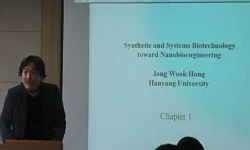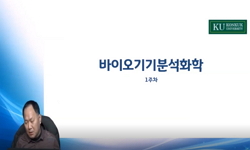Background : Paeonia japonica Miyabe is a medicinal plant which has been widely used as a component of blood-building decoctions (Chinese medicinal concept : Bu-Xie). The immunopharmacological characteristics of the extract of Paeonia japonica (PJ) we...
http://chineseinput.net/에서 pinyin(병음)방식으로 중국어를 변환할 수 있습니다.
변환된 중국어를 복사하여 사용하시면 됩니다.
- 中文 을 입력하시려면 zhongwen을 입력하시고 space를누르시면됩니다.
- 北京 을 입력하시려면 beijing을 입력하시고 space를 누르시면 됩니다.



백작약 조다당분획에 의한 B 세포 증식의 특성 = Characteristics of B cell proliferation by polysaccharide fraction of Paeonia japonica miyabe
한글로보기https://www.riss.kr/link?id=A105386224
-
저자
박혜란 ; 함연호 ; 이성태 ; 백상기 ; 조성기 ; Park, Hae-Ran ; Ham, Yeon-Ho ; Yee, Sung-Tae ; Paik, Sang-Gi ; Jo, Sung-Kee
- 발행기관
- 학술지명
- 권호사항
-
발행연도
2001
-
작성언어
Korean
- 주제어
-
등재정보
SCOPUS,KCI등재,SCIE
-
자료형태
학술저널
-
수록면
126-134(9쪽)
- DOI식별코드
- 제공처
-
0
상세조회 -
0
다운로드
부가정보
다국어 초록 (Multilingual Abstract)
Background : Paeonia japonica Miyabe is a medicinal plant which has been widely used as a component of blood-building decoctions (Chinese medicinal concept : Bu-Xie). The immunopharmacological characteristics of the extract of Paeonia japonica (PJ) were investigated. Methods : The effects of fractions of PJ extract on lymphocyte proliferation were measured by $H^3$-thymidine incorporation assay. The proliferated lymphocyte subsets were analyzed in flow cytometry. The subset cell populations of spleen cells were separated by magnetic cell separation system, and their proliferation by the extract were investigated. The effect of the extract on antibody production was determined in mice challenged with sheep red blood cells (SRBC) using hemolytic plaque forming cell assay. Results : Spleen cells were proliferated by water extract of PJ. Polysaccharide fraction (PJ-P) of the extract was most active in the proliferation. It was found in flow cytometry that the lymphocyte subset proliferated by PJ-P was B cell population. Among the separated subset cell populations, T cell-depleted cell population and macrophage-depleted cell population were most proliferated by PJ-P. However, positively selected populations of B cells and T cells were not proliferated by PJ-P. These results indicate that B cell proliferation by PJ-P may require the assistance of macrophages or T cells. These results suggest that firstly PJ-P may stimulate macrophages or T cells, and then B cells are activated. The number of antibody-secreting cells was increased by administration of PJ-P in mice immunized with SRBC as a T-dependent antigen. Conclusion : These results suggest that macrophages and accessory cells are directly activated by PJ-P and then helper T cells and B cells are indirectly activated. As the results, immune responses might be coordinately improved. In conclusion, PJ-P, a polysaccharide of P. japonica, may be a characteristic immunostimulator, which is analogous to polysaccharides such as lentinan, PSK and ginsan.
동일학술지(권/호) 다른 논문
-
T cell costimulation by CD28, CTLA-4, and ICOS
- 대한면역학회
- Kyung-Mi Lee
- 2001
- SCOPUS,KCI등재,SCIE
-
Nitric oxide-induced immune switching in experimental inflammatory autoimmune diseases
- 대한면역학회
- Hyun-Jeong Kwak
- 2001
- SCOPUS,KCI등재,SCIE
-
Interferon consensus sequence binding protein
- 대한면역학회
- Byung-Kiu Park
- 2001
- SCOPUS,KCI등재,SCIE
-
- 대한면역학회
- 김재식
- 2001
- SCOPUS,KCI등재,SCIE




 ScienceON
ScienceON DBpia
DBpia



